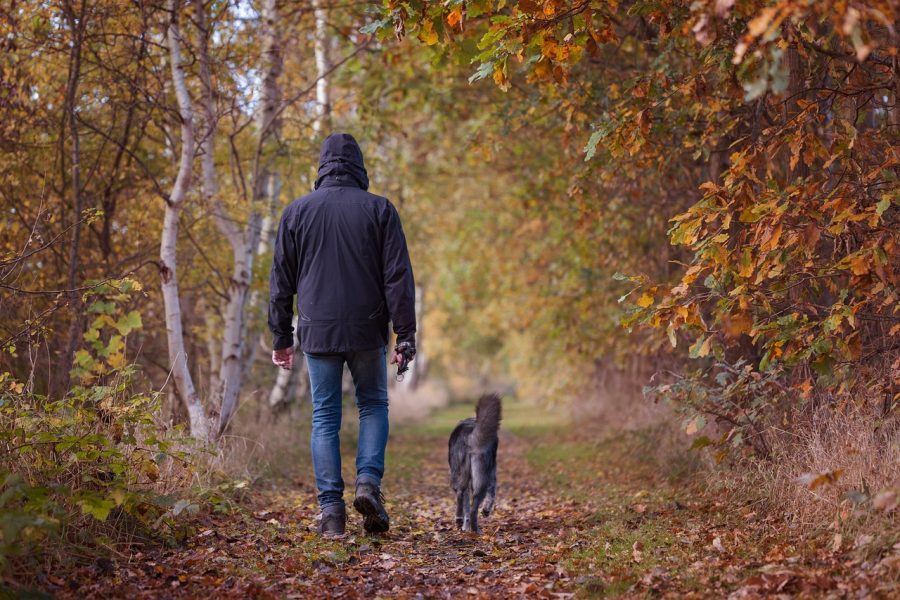
The natural world has always held a special allure for us. From our earliest days as hunter-gatherers to our modern, urbanized lives, we have always been drawn to the beauty and tranquility of nature. But beyond its aesthetic appeal, nature also offers a wealth of health benefits that are only now beginning to be fully understood.
Numerous studies have shown that spending time in nature can have a positive impact on both our physical and mental health. In this article, we’ll explore some of the many ways that nature can benefit our well-being, drawing on the research of several leading experts in the field.
One of the most well-known advocates of the health benefits of nature is Richard Louv, author of the best-selling book “Last Child in the Woods: Saving Our Children from Nature-Deficit Disorder.” Louv argues that children today are suffering from a lack of exposure to nature, which is having a negative impact on their health and development. He cites research showing that spending time in nature can improve cognitive function, boost creativity, and reduce symptoms of attention-deficit/hyperactivity disorder (ADHD).
But it’s not just children who stand to benefit from spending time in nature. In her book “The Nature Fix: Why Nature Makes us Happier, Healthier, and More Creative,” journalist Florence Williams explores the many ways that nature can benefit adults as well. Drawing on research from around the world, Williams argues that spending time in nature can lower stress levels, improve mood, and even boost the immune system.
One of the most compelling pieces of evidence for the health benefits of nature comes from a study published in the journal Environmental Health and Preventive Medicine. The study, which looked at the health of more than 1,200 Japanese adults, found that those who spent more time in nature had lower levels of the stress hormone cortisol and a lower risk of developing cardiovascular disease.
Similarly, in his book “The Nature Principle: Human Restoration and the End of Nature-Deficit Disorder,” Richard Louv cites a study showing that hospital patients who had a view of trees from their room recovered faster and required less pain medication than those without such a view. Louv argues that this is evidence of the healing power of nature and suggests that we should be incorporating more natural elements into our built environments.
But what is it about nature that makes it so beneficial to our health? In his book “The Biophilia Hypothesis,” biologist Edward O. Wilson argues that humans have an innate affinity for nature that is hard-wired into our biology. Wilson suggests that our modern, urbanized lives have taken us too far from our natural roots, leading to a range of health problems.
Wilson’s theory is supported by a growing body of research, including a study published in the journal Landscape and Urban Planning. The study, which looked at the impact of urban green spaces on mental health, found that people who lived closer to green spaces reported lower levels of stress, anxiety, and depression.
Finally, it’s worth noting that the benefits of nature are not limited to outdoor enthusiasts or avid hikers. Even small doses of nature can have a positive impact on our health. In her book “The Joy of Forest Bathing: Reconnect with Wild Places & Rejuvenate Your Life,” Melanie Choukas-Bradley explores the Japanese practice of shinrin-yoku, or forest bathing, which involves simply immersing oneself in nature and taking in the sights, sounds, and smells of the natural world. Choukas-Bradley argues that even short walks in the woods can have a powerful restorative effect on our bodies and minds.
The health benefits of spending time in nature are clear and well-documented. From reducing stress and anxiety to improving cognitive function and creativity, nature has much to offer us. As we continue to navigate an increasingly urbanized world, it’s more important than ever that we make time to connect with the natural world around us. Whether it’s a hike in the mountains or a walk in the park, even small doses of nature can have a big impact on our health and well-being.
So why not take a cue from the experts and make spending time in nature a regular part of your routine? Whether you’re looking to improve your physical health, reduce stress, or simply recharge your batteries, there’s no better prescription than a healthy dose of nature. As Florence Williams writes in “The Nature Fix,” “Nature is not a panacea, but it is a powerful tonic for our times.” So the next time you’re feeling overwhelmed, stressed out, or in need of a mental break, consider heading outside and taking in the beauty of the natural world. Your body and mind will thank you for it.
From reducing stress and anxiety to improving cognitive function and creativity, few things can match the restorative power of nature. And with so many experts and studies supporting these claims, there’s no reason not to make spending time in nature a regular part of your routine. So why not take a break from the hustle and bustle of modern life and head outside for a little dose of nature? Your mind and body will thank you for it.
References:
- Louv, R. (2008). Last Child in the Woods: Saving Our Children from Nature-Deficit Disorder. Chapel Hill, NC: Algonquin Books.
- Williams, F. (2017). The Nature Fix: Why Nature Makes us Happier, Healthier, and More Creative. New York, NY: W.W. Norton & Company.
- Li, Q., Morimoto, K., Kobayashi, M., Inagaki, H., Katsumata, M., Hirata, Y., & Li, Y. J. (2008). Visiting a forest, but not a city, increases human natural killer activity and expression of anti-cancer proteins. International journal of immunopathology and pharmacology, 21(1_suppl), 117-127.
- Ulrich, R. S. (1984). View through a window may influence recovery from surgery. Science, 224(4647), 420-421.
- Wilson, E. O. (1984). Biophilia. Cambridge, MA: Harvard University Press.
- Kuo, F. E., & Sullivan, W. C. (2001). Aggression and violence in the inner city: Effects of environment via mental fatigue. Environment and behavior, 33(4), 543-571.
- Choukas-Bradley, M. (2018). The Joy of Forest Bathing: Reconnect with Wild Places & Rejuvenate Your Life. New York, NY: The Experiment.






Comments are closed.